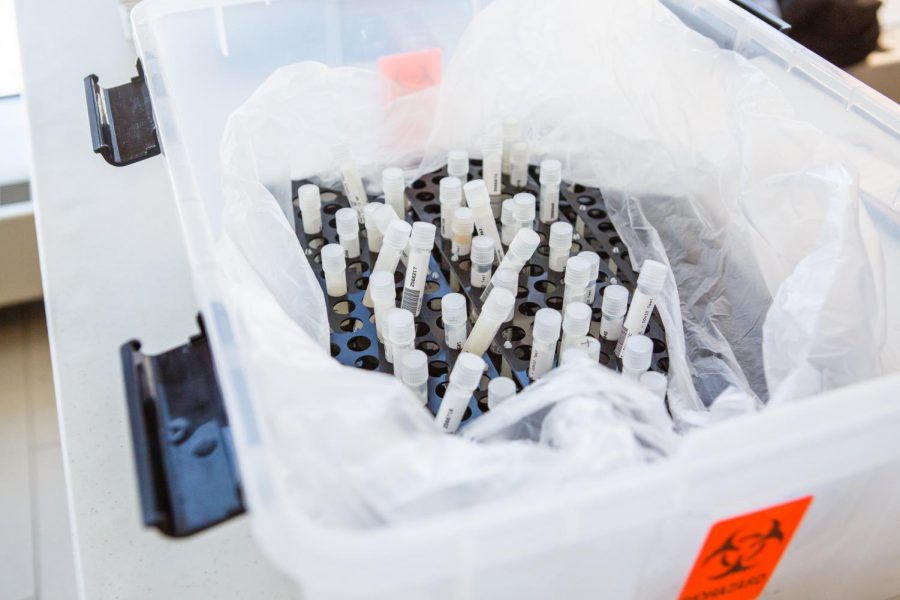Over 1,300 Illinois K-12 schools sign up for SHIELD Testing
Many completed rapid COVID-19 saliva tests sit inside of a holding box at the ARC testing center on Feb. 1. Over 1,300 Illinois K-12 schools in 260 districts have signed up for SHIELD Testing after being funded through the CARES act.
Sep 6, 2021
As the Delta variant continues to threaten the closure of schools, many Illinois K-12 schools are utilizing the University-developed SHIELD test in order to protect the safety of their students.
Over 1,300 schools across 260 districts have registered for the testing, which is being subsidized by Illinois through the CARES act.
Benjamin Taylor, marketing and communications director for SHIELD Illinois, described the funding in more detail.
“The original source of the money is federal funding, it’s from the CARES act and the American Rescue Plan,” said Benjamin Taylor. “That was distributed to the states, then (the Illinois Department of Public Health) has made SHIELD testing free using that funding, so the schools don’t have to pay for the tests themselves.”
While the schools that have chosen to sign up for the free testing are distributed widely across the state, the IDPH has set up seven sample-processing laboratories, with three in Chicago and four others in other regions in order to deliver tests as quickly as possible.
Get The Daily Illini in your inbox!
“We’ve worked hard to launch these seven labs to give us that capacity and that regional network of labs so that you don’t have to go five hours away if you’re in one corner of the state to the other,” Taylor said.
With the COVID-19 vaccine still unavailable to young children, testing has become even more important in student bodies made up of these age groups.
Kevin Suchinski, superintendent of Hillside District 93, elaborated on his district’s process for testing.
“We do consent-based testing for all of our students,” said Kevin Suchinski when describing the weekly tests done for the approximately 500 students of his district, which includes students from kindergarten through the eighth grade. Because none of the students are over 18, consent is given by the students’ parents or guardians through an online form.
Along with the consent-based testing of students, there is also required testing for students involved in extracurricular activities such as sports or music programs.
“Twice a week, students involved in those programs are required to participate,” Suchinski said.
The testing is done in large groups at the start of each school day and does not appear to be especially burdensome for the students involved.
The IDPH has advised all schools to follow a similar weekly testing schedule, especially in the light of a nationwide increase in cases. Schools which do implement weekly testing will be prioritized for the IDPH’s new Test-to-Stay program, where students who were in contact with an infected individual while both were properly masked and socially distanced can avoid quarantine by adhering to a more rigorous testing schedule.






